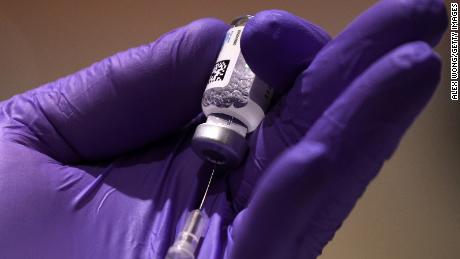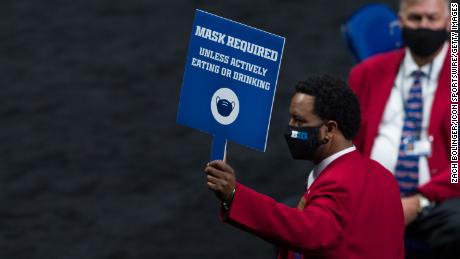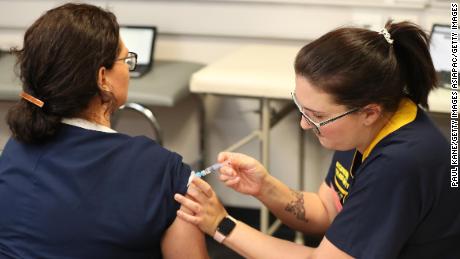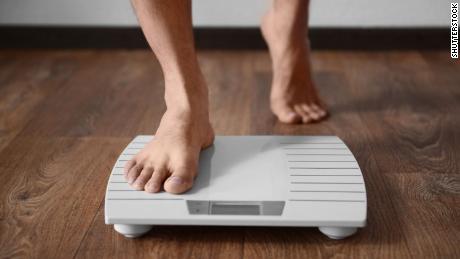The country is inching closer to 30 million Covid infections. Cases are rising by more than 10% in 14 states compared to last week.
“I think we are going to see a surge in the number of infections,” emergency physician Dr. Leana Wen told CNN on Wednesday night. “I think what helps this time though is that the most vulnerable — particularly nursing home residents, people who are older — are now vaccinated. And so we may prevent a spike in hospitalizations and deaths.”
Meanwhile, governors and local leaders have eased restrictions on indoor gatherings, citing fewer Covid-19 cases and more vaccinations. And spring break crowds are gathering in Florida and nationwide air travel numbers are hitting pandemic-era records.
Dr. Wen still has her concerns, though.
“I think we’re going to see an increase in the number of infections, but not necessarily an increase in hospitalizations and deaths, which again is a really good thing,” she told CNN on Thursday. “But we also note that many governors are not going to reimpose restrictions unless we see our hospitals becoming overwhelmed.
“So we could see a situation of a lot more infections outpacing the ability of our vaccines to work and people letting down their guard but not having the restrictions in place to curb it. And I fear that we may lose, as a result, this race of variants versus vaccines.”
What’s causing some local spikes
Michigan cases are increasing the fastest, with more than a 50% jump this week compared to last, according to the Johns Hopkins data. Delaware, Montana, Alabama and West Virginia have also seen big increases.
There’s a long list of factors contributing to the spike in cases in Michigan, according to Dr. Jennifer Morse, the medical director for the Mid-Michigan District Health Department.
Those include the rolling back of restrictions, a prison outbreak, Covid-19 fatigue, a failure to wear masks, and the B.1.1.7 variant fueling the surge, Morse told CNN. Michigan Gov. Gretchen Whitmer eased restrictions earlier this month, upping capacity limits at restaurants as well as in retail stores, gyms and other facilities.
“My one hope is that we have been really aggressively vaccinating and have been working through the different categories for vaccination quite well,” Morse told CNN. “And my hope is that that will help to keep (cases) from climbing as rampantly as (they) did back in the fall.”
In West Virginia, Gov. Jim Justice said Wednesday that Covid-19 hospitalizations have “jumped up” slightly in the state, asking residents to continue their mitigation efforts “a little while longer.”
“We have 70 people in the ICU, that’s up a little bit,” Justice said.
During Wednesday’s news briefing, he added that the state has had “seven outbreaks in our church community” across five counties.
Church gatherings “can really cause an issue, because we’re singing…probably embracing,” the governor said. “If you decided to go to church, please keep that pew in between you and wear your mask.”
Nearly 1 in 8 Americans fully vaccinated
Meanwhile, vaccinations have accelerated as officials race to get as many shots into arms as quickly as possible.
On Wednesday, both Fauci and Walensky pushed back against questions about herd immunity, saying a lot depended on how quickly Americans take vaccines.
“Let’s just keep pushing to get as many people vaccinated as we possibly can,” Fauci said. “And as we do that, you will see the type of infection, the dynamics of the outbreak, get less and less and less, so whatever that time is — middle of the summer, end of the summer, early fall, we’ll be much, much better off than we are now.”
For now, the US still has a long way to go to overcome vaccine hesitancy, said National Institutes of Health Director Dr. Francis Collins.
Vaccination is the country’s best hope to get beyond the pandemic, he said, “and yet there’s all this overlay, and some of it is politics and some of it’s social media conspiracy theories and some of it is just distrust of anything that the government had anything to do with.”
“We have a long way to go yet to try to overcome that,” he told CNN on Wednesday.
CNN’s Brandon Miller, Deidre McPhillips, Melissa Alonso, Naomi Thomas, Nick Neville, Maggie Fox, Adrienne Broaddus and Rebekah Riess contributed to this report.
![]()










